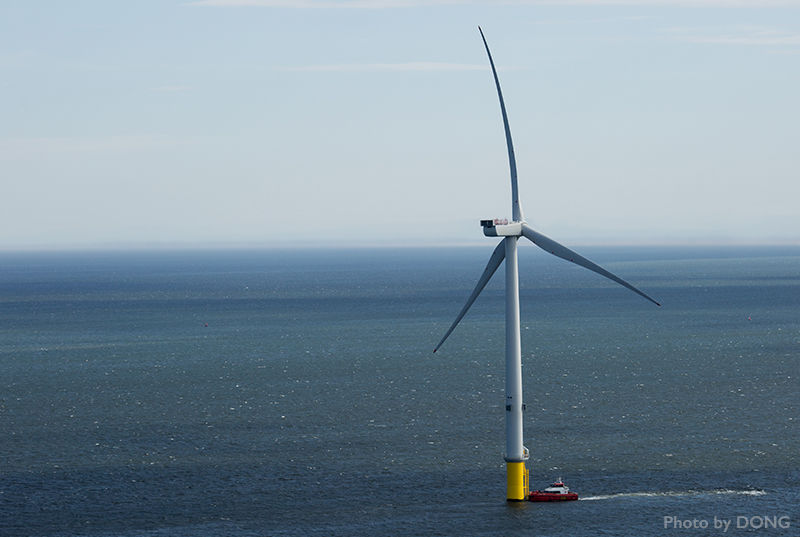
[ad_1]

Dong Energy
The Nineteen Seventies oil disaster, and the way the nations impacted by it responded, has a number of classes for contemporary nations trying to transition to renewables, in accordance with the authors of a brand new paper. In 1973, the Arab nations within the Organization of Petroleum Exporting Countries (OPEC), stopped exporting oil to nations that supported Israel within the Yom Kippur War. The outcomes noticed oil shortages and costs in many countries—together with components of Europe, the United States, and Canada—skyrocket. In response, some started shifting towards renewables.
However, there is a political worth to be paid for adopting insurance policies that transition away from fossil fuels. These insurance policies may be pricey within the quick time period, prompting companies and customers to push again on them. Some nations—usually in Europe—had advantageous political options or adopted techniques that softened the political blow, permitting them to transfer ahead with these efforts. Others, such because the US and Canada, floundered. New analysis checked out OECD nations’ responses to the oil disaster and dug into the political explanation why these responses differed.
“We are… enthusiastic about making an attempt to grasp when a rustic’s policymakers are in a position to overcome opposition to [these] pricey insurance policies for companies and households,” Jonas Meckling, an affiliate professor of vitality and environmental coverage on the University of California, Berkeley, and an creator of the paper, informed Ars.
Back in time
Meckling’s paper is a abstract of a bigger, yet-to-be-published piece of analysis. This effort goes again round 5 years when Meckling and colleagues started learning how the OECD nations responded to the oil disaster within the Nineteen Seventies. According to Meckling, the crew selected this timeframe as a result of it supplied the longest interval to check efforts made towards driving a clear vitality transition. The bigger piece of analysis makes use of a number of strategies, together with statistical evaluation of the OECD nations’ responses and varied case research. The present report focuses on understanding how coverage responses developed.
Some 50 years after the occasions it analyzes, this work seems well timed, given the affect that the Ukrainian conflict has had on vitality costs. Again, a provide crunch and spiking vitality costs have triggered some European nations to amp up their inexperienced vitality efforts, whereas others, together with the US, have targeted on producing extra oil.
In writing the abstract paper, Meckling and his crew additionally launched views from the present vitality disaster attributable to the conflict in Ukraine. “It solely anecdotally examines coverage responses to the present vitality disaster. Given that governments’ coverage responses are nonetheless unfolding, we do not have systematic knowledge to check nation actions,” in accordance with Meckling.
Insulation station
Meckling mentioned that there are two predominant methods governments rapidly adopted new vitality insurance policies with out paying a serious worth on the polls. The first is insulation, however not the sort you place in your attic. In this context, it implies that a authorities doesn’t pay a political worth for implementing or adopting pricey insurance policies, similar to carbon pricing.
This can take a number of varieties. For one, governments in nations with proportional illustration have a tendency to not endure as a lot on the polls once they undertake pricey environmental insurance policies. Some of it’s because, below proportional authorities guidelines, minority events just like the Green Party can find yourself in coalition governments. Countries that are inclined to have coalition governments—like many European nations—additionally make it tougher for voters to choose anybody companion occasion in a coalition to penalize. France is an instance of an OECD nation that makes use of this mechanism.
Another means a rustic may be insulated is by having a powerful environmental company with a variety of autonomy. These organizations can usually climate backlash simpler as a result of their high-level workers usually have lifetime jobs, Meckling mentioned. Alternatively, if an company just isn’t as autonomous, and its workers are politically appointed, its appointees could also be extra reliant on firms for help, he added. As such, they are often extra conscious of company pushback.
In normal, the US has not been swift to undertake insurance policies that transition towards renewables, Meckling mentioned. However, one prime instance of insulation is the California Air Resource Board. It is comparatively autonomous from the state’s authorities and isn’t significantly topic to shopper, lobbyist, and enterprise pressures.
Softening the blow
Beyond political insulation, the second key issue is compensation, which includes a authorities making a take care of teams that may stand to lose from adopting greener vitality insurance policies—like by subsidizing inexperienced metal manufacturing, Meckling mentioned. Another choice is for the federal government to supply welfare to particular person households to compensate them for larger vitality prices.
Germany tends to favor this mechanism, Meckling mentioned. The nation created the Coal Compromise, which introduced collectively coal firms, unions, leaders from coal mining areas, and environmentalists to discover a plan to eradicate coal use by 2038. The German authorities will present financial help to employees and coal-dependent areas and help different industries to melt the blow.
Other nations selected neither choice, opting as an alternative to make use of market-driven options. They responded to cost indicators, ready for the price of sure inexperienced applied sciences to lower. This implies that they have been slower in adopting inexperienced vitality insurance policies. Some examples embrace the US, Canada, and Australia.
According to a press launch on the analysis, the work presents “necessary classes” for governments trying to scale back their emissions. Further, Meckling hopes that the paper will help nations in tailoring insurance policies to their particular institutional contexts, he mentioned.
Science, 2022. DOI: 10.1126/science.adc9973 (About DOIs)
[ad_2]